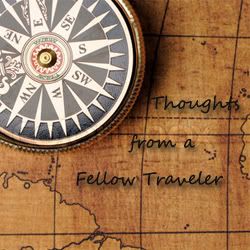Born to Run
>> Wednesday, August 1, 2012
 |
Eric Liddell was born in January 1902 to the Rev. and Mrs. James Dunlop Liddell, who were serving as missionaries in China. Eric went to school in China for the first five years of his life. He and his brother, Robert, were transferred to Eltham College - a boarding school in London for the sons of missionaries - when Eric was six years old. Their parents and sister Jenny remained in China.
At Eltham, Eric proved himself to be an outstanding athlete, becoming the captain of the rugby and cricket teams. He was awarded the Blackheath Cup as the best athlete of the year. His coach described him as being "completely without vanity." Eric became known as the fastest runner in Scotland during his time at Eltham, later becoming the most popular athlete to come from Scotland. Eltham renamed their sports center "Eric Liddell Sports Center" in his memory.
Eric was chosen to speak for the Glasgow Students' Evangelical Union due to his strong Christian testimony and in hopes that he would draw large crowds to hear the Gospel.
Eric joined Robert at the University of Edinburgh to study Pure Science. Athletics continue to play a big role in his academic career. He ran and played rugby for the University club, setting school records in the 100 yard dash and 220 yard sprint. He graduated in 1924 after competing the the Paris Olympiad.
Speaking of the Olympics, one of the highlights of Eric's life was competing in the 1924 Olympics in Paris. Eric stuck to his convictions and refused to run a heat held on Sunday and was subsequently forced to withdraw from the 100 meter race - his best event. He won a gold medal in the 200 meter race and a bronze in the 400 meter. His performance in the 200 meter stood as a European record for 12 years.
After the Olympics and graduation from Edinburgh, Eric returned to China to carry on his family's missionary work. He married Florence Mackenzie, a fellow missionary child, in 1934. They had three daughters - Patricia, Heather and Maureen.
In 1941, life in China was becoming so dangerous for foreigners that the British Government advised Brisish citizens to leave the country. Florence and the children left for Canada while Eric stayed behind. Invading Japanese forces took over the mission station where Eric was working and he was interned at the Weihsien Internment Camp. Eric became a leader in the camp, helping the elderly, teaching Bible classes, arranging games, and teaching science to the children, who fondly nicknamed him "Uncle Eric."
One of Eric's fellow detainees, Norman Cliff, described Eric as "the finest Christian gentleman it has been my pleasure to meet. In all the time in the camp, I never heard him say a bad word about anybody." Langdon Gilkey, who also survived the camp and became a prominent theologian in his native America, said of Liddell: "Often in an evening I would see him bent over a chessboard or a model boat, or directing some sort of square dance – absorbed, weary and interested, pouring all of himself into this effort to capture the imagination of these penned-up youths. He was overflowing with good humour and love for life, and with enthusiasm and charm. It is rare indeed that a person has the good fortune to meet a saint, but he came as close to it as anyone I have ever known."
Eric died in February 1945, just five days short of liberation. An inoperable brain tumor, overwork and malnourishment did him in. There was a tremendous outpouring of grief at his death, both inside and outside the camp. In 2008, Chinese authorities revealed that Eric gave up a change to leave the camp, giving his place to a pregnant woman instead. The Japanese had made a deal with the British, with Churchill's for prisoner exchanges.
According to a fellow missionary, Eric's last words were, "It's complete surrender." What an incredibly inspiring life and testimony, even with his last words!
"God made me fast. And when I run, I feel His pleasure. "
Chariots of Fire
Sources: Eric Liddell.org and Wikipedia









0 comments:
Post a Comment